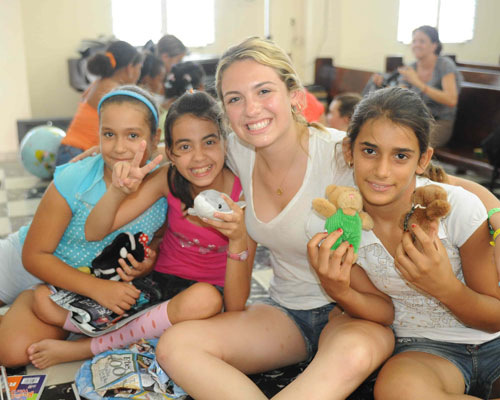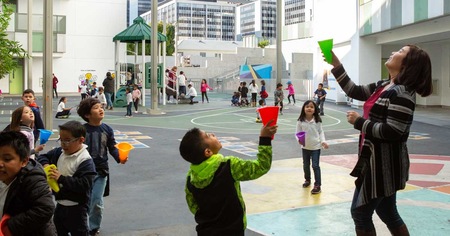A positive adult-youth relationship built on trust, understanding, and caring will foster children's cooperation and motivation and increase their positive outcomes at school (Webster-Stratton, 1999). These 10 tips will help out-of-school time professionals build positive relationships with youth:
1. Meet and greet youth daily by name, at the door, to make a personal connection. "Hi Amani, good to see you today. How did your math test go?" "Jordan, hello. I saw you playing outside earlier. It looked like you were having fun!"
2. Talk with youth at their level, both physically and developmentally, to convey respect and establish a level playing field. For younger youth this may mean kneeling near them; for older youth, sitting next to them. A 7-year-old has much different developmental needs than a 12-year-old, and language and approach should be tailored accordingly.
3. Ask open-ended questions and listen to learn more about where youth are coming from, and their backgrounds, interests, and feelings. "How did that make you feel?" "What was that like?"
4. Encourage youth by asking questions and providing specific comments to convey interest in what the youth is saying. "What happened next?" "How did you come up with your idea?"
5. Reflect or paraphrase during conversations with youth to show that you are listening and that you understand. "So, you feel that ..."
6. Watch for communication roadblocks such as lecturing, judging, and preaching, to ensure that you are keeping doors open for dialogue.
7. Remember context and details from past conversations and experiences with students, to show that you are paying attention and interested in their lives. "How did the baseball game go last weekend?" "I know that you had a test today. How do you think it went?" "We're having string cheese with our snack today. I remember a couple of weeks ago you told me it was your favorite."
8. Participate alongside youth to show that you're interested, and to model risk-taking, planning, and reflecting. "How do you think we should prepare?" "How would you like to start?" "What did you think of that activity?" "What should we do differently next time?"
9. Support opportunities for youth input, shared responsibility, and leadership to help youth develop a positive self-efficacy and important life skills. "Your ideas on how we should approach this are important. What do you think we should do?" "How would you feel about leading the group meeting tomorrow?" "What do you think you could do to help?" "What do you think we could do to make it better?"
10. Smile, have fun, and show youth that you enjoy what you do!
Written by Heidi Ham, Vice President of Programs and Strategy, National AfterSchool Association.
Webster-Stratton, C. (1999). How to promote children's social and emotional competence. London: Paul Chapman Publishing Ltd.
Photo courtesy of Friendship Tours World Travel.




